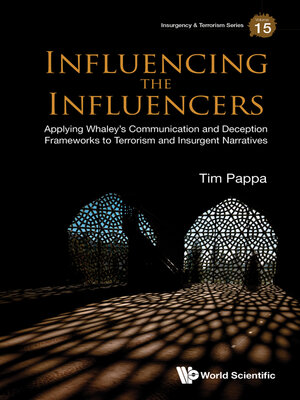Influencing the Influencers
ebook ∣ Applying Whaley's Communication And Deception Frameworks To Terrorism And Insurgent Narratives · Insurgency and Terrorism Series
By Tim Pappa

Sign up to save your library
With an OverDrive account, you can save your favorite libraries for at-a-glance information about availability. Find out more about OverDrive accounts.
Find this title in Libby, the library reading app by OverDrive.



Search for a digital library with this title
Title found at these libraries:
| Library Name | Distance |
|---|---|
| Loading... |
This rare work is an unorthodox but informed approach to understanding and countering terrorism and insurgency narratives.The author's candid ethnography of communication and organizational communication in progressive Islamic boarding schools in Indonesia is examined within the communication and deception frameworks of the late American information operations scholar Barton Whaley.Nearly 20 years ago, the author shadowed progressive Muslim influencers throughout Islamic boarding school or pesantren communities, studying their communication practices. This period was marked by repeated terrorist attacks claiming hundreds of lives throughout Indonesia and dangerous fugitives responsible for those attacks hiding throughout the country. These fugitives grew up in Islamic boarding schools, in some of the very communities and regions these case studies are based in. Many were hiding near those schools while the author was there.The narratives of the progressive Muslim influencers featured in these ethnographic case studies contrast the narratives of terrorism and insurgency that we might imagine or be familiar with today. What is stark about these case studies are the largely conservative, generational audiences in these Islamic boarding school communities that welcomed many of these progressive narratives, even as more extremist narratives that we might characterize as terrorism and insurgency narratives were projected and shared in these same communities among these same audiences. This work explores how and why those communities responded positively to those influencers.The processes described in this ethnography of communication have not changed much, other than the projection of those same narratives and communication online in greater content.This book is useful for both researchers and practitioners in understanding and countering influence, in the context of terrorism and insurgency narratives.







